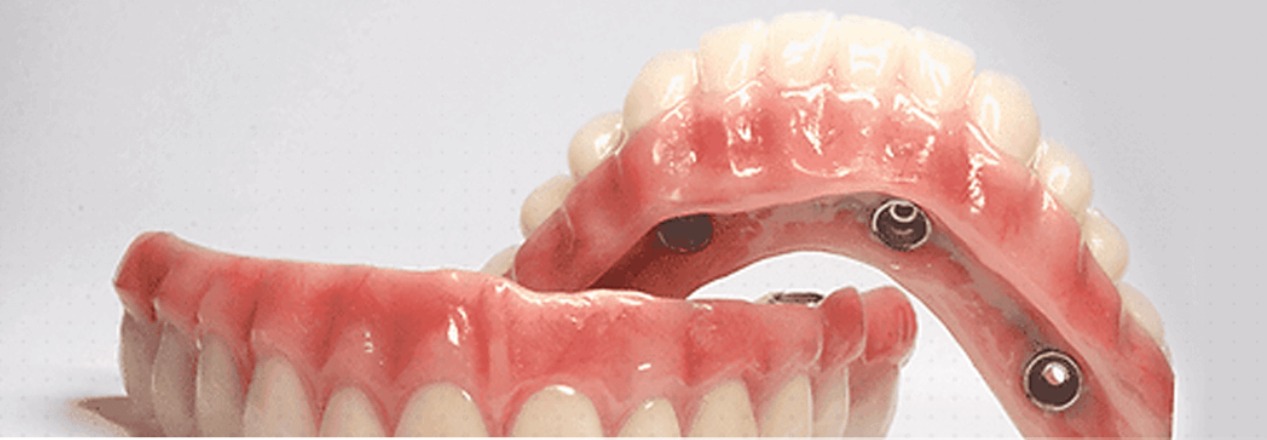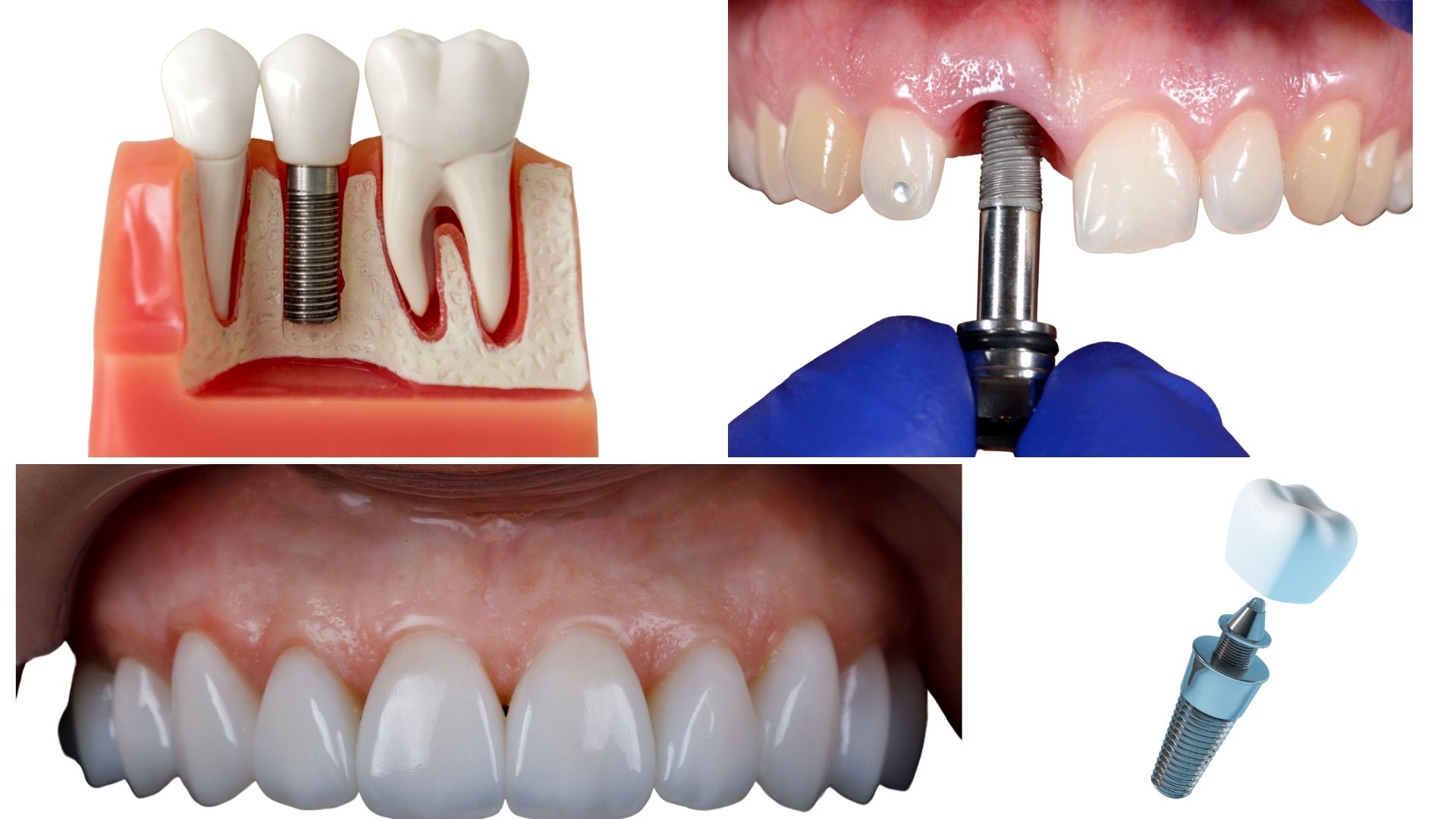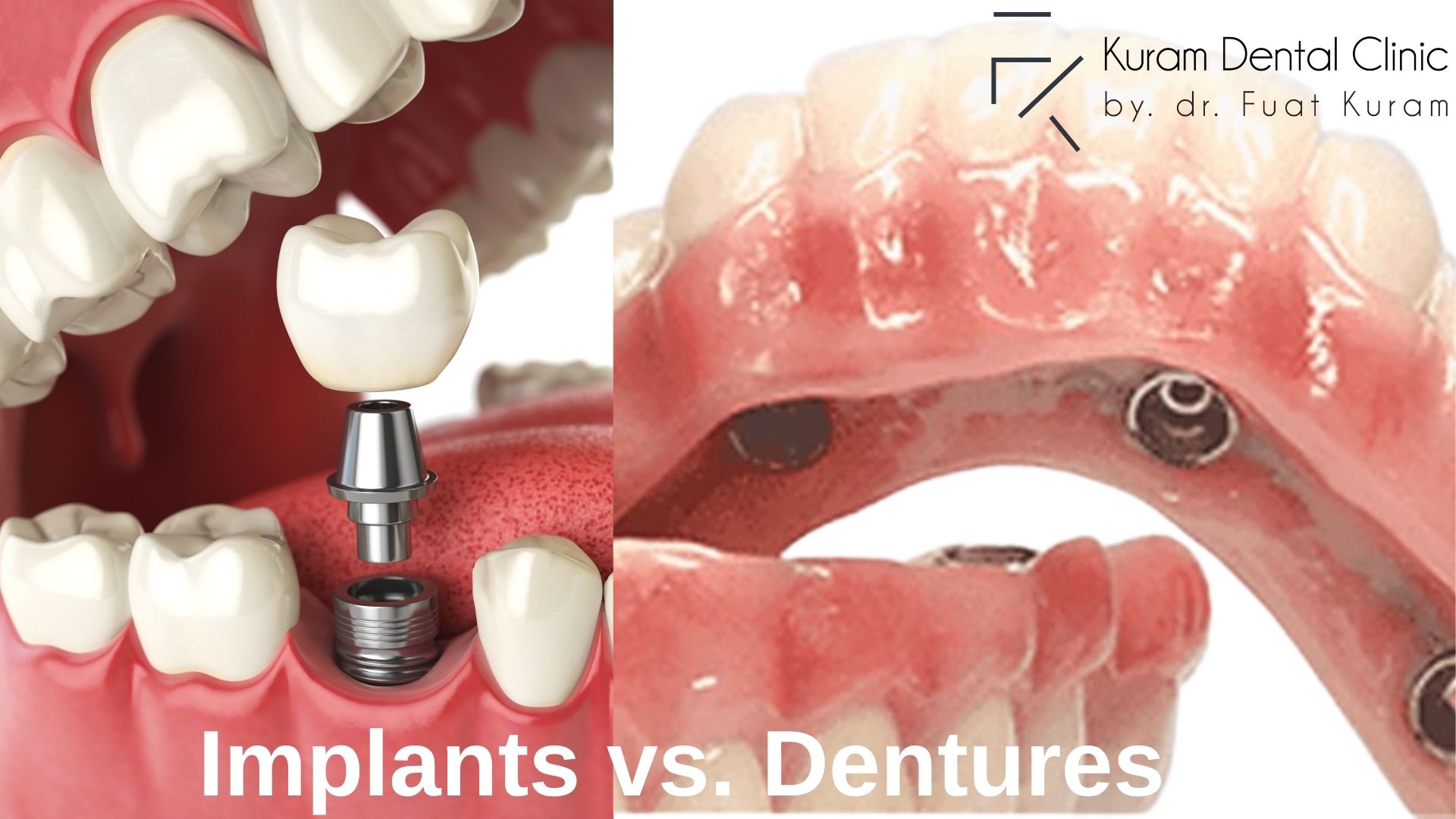What are dentures?
Dentures are false teeth you can take in and out. They replace the ones you've lost and help you eat, talk, and smile better. It's as simple as that.
Why do people get dentures? Because chewing without teeth isn't easy. And let's be honest, smiling without teeth doesn't feel the same either.
Are they only for the elderly?
Not at all.
Anyone who's lost teeth due to injury, decay, or disease might need them.

There are two main types: full and partial. Full dentures replace all teeth in your upper or lower jaw. Partial ones fill the gaps when some teeth remain. Think of them like puzzle pieces custom-made to fit what's missing.
Modern dentures aren't like your grandma's. Materials are lighter. Fit is better.
Bottom line? Dentures aren't just teeth, they're confidence, comfort, and a second chance to smile.
What is a dental implant?
A dental implant is a small titanium screw placed in your jaw to hold a fake tooth. That's it. It acts like a real tooth root and stays there for good.
Lost a tooth?
You need a base.
That's what an implant is.
Once it's in, a crown goes on top. Looks real and feels natural, like your real tooth. You can chew with implant like your real teeth.

Think of it like planting a metal seed in your jaw. Over time, it grows strong roots and holds your new tooth steady, even when you bite into something hard.
End of the day? It's not just about filling a gap. It's about getting your bite, your comfort, and your smile back without worrying it'll shift or fall out.
|
Feature |
Dental implants |
Dentures |
|
Fixed or removable |
Fixed in jaw |
Removable |
|
Feels like teeth |
Very natural |
Less natural |
|
Cleaning method |
Brush like real teeth |
Remove and clean |
|
Stability |
Doesn't move |
May slip or shift |
|
Longevity |
Can last decades |
Needs replacement |
|
Bone support |
Prevents bone loss |
Doesn’t stop shrinkage |
|
Comfort level |
High comfort |
May need adjusting |
The comparison is in the table. A dental implant is a small titanium screw placed in your jaw to hold a fake tooth. That's it. It acts like a real tooth root and stays there for good.
Lost a tooth? You need a base. That's what an implant is.
Once it's in, a crown goes on top. Looks real and feels natural, like your real tooth. You can chew with implant like your real teeth.
Think of it like planting a metal seed in your jaw. Over time, it grows strong roots and holds your new tooth steady, even when you bite into something hard.
End of the day? It's not just about filling a gap. It's about getting your bite, your comfort, and your smile back without worrying it'll shift or fall out.
Types of dentures
There's not just one type of denture there are a few. And picking the right one really depends on how many teeth you’ve lost.
If all your teeth are gone, full dentures cover the whole upper or lower jaw. You pop them in, they sit on your gums, and you're good to go. If you still have some natural teeth, then partial dentures are better. They clip onto your remaining teeth and fill spaces.
Need more grip?
Try implant-supported ones.
They click onto metal posts in your jaw. Super stable.
So, if you want something quick and simple, go for full or partial. If you're after long-term comfort, implants might be worth it. The key is finding what fits your life and your smile.
What are flexible dentures?
Flexible dentures are soft, bendable alternatives to regular partial dentures. They don't use metal clasps and feel lighter in the mouth. Made from a flexible resin, they fit snugly and move naturally as you talk or chew.
They're great for people with sensitive gums or who struggle with hard acrylic dentures. And, they're less likely to break if dropped.
Think of them like a soft sports mouthguard, only thinner and way more natural-looking. More comfort, less hassle.
All-on-4 implant dentures
All on 4 means a full set of teeth supported by just four implants. That's the whole idea. Instead of replacing each tooth one by one, dentists place four implants in your jaw and attach a full denture on top.
Need a full smile fast?
This is the shortcut.
And yes, it works.
The implants go in at special angles to grip the bone better even if there's been some bone loss. That's one big plus. Another? You usually get your new teeth on the same day. Eat, smile, and talk - no long waiting.
So, how's it different from regular dentures? It stays in. Doesn't move. No glue. No slipping. It's fixed, strong, and feels way more natural.
Picture this: regular dentures are like clip-on earrings. All on 4? Pierced and secured. You feel the difference.
If you want a full, stable smile without dozens of implants, All on 4 might be your best bet.
How much do dentures cost?
When it comes to getting dentures, the price can change a lot depending on where you go. In Turkey, full or partial dentures usually cost between $300 and $1,000, while in most European countries, the same treatment may cost anywhere from €1,000 to €3,000 or even more.
Why is it cheaper in Turkey?
Simple. Lower living costs, affordable lab fees, and skilled dentists who charge less than their European counterparts.
In Europe, the prices are higher mostly due to expensive materials, clinic running costs, and stricter healthcare regulations. Plus, public healthcare waiting times can slow things down.
In Turkey, it's fast and smooth. No long waits. Many clinics offer all-inclusive denture packages, airport pick-up, hotel stays, transfers, and access to your dentist any time you need. Some even include a translator.
So, you get two things at once:
Affordable dentures and a holiday.
That's why many people prefer getting their new smile in Turkey.
Bottom line? If you're looking for comfort, quality, and savings, dentures in Turkey are a smart move.
How long does a denture last?
Dentures usually last 5 to 10 years. You can use them more with good cleaning, regular check-ups and gentle usage. But dropping them, grinding your teeth, or significant changes in your mouth shape can wear them out faster. Over time, even the best dentures need a refresh to stay comfy and useful.
Benefits of dentures
|
Benefit |
Description |
|
Better chewing |
Eat more comfortably |
|
Clearer speech |
Speak without mumbling |
|
Boosted confidence |
Smile without worry |
|
Facial support |
Prevents sunken cheeks |
|
Natural look |
Matches real teeth |
|
Easy to clean |
Simple daily care |
|
Budget-friendly |
Affordable tooth replacement |
They give several benefits! Dentures help you eat, talk, and smile with ease again. They fill the spaces and bring back the comfort of having teeth. You feel more like yourself, especially in social moments.
They boost your confidence!
They also give your face support. Without teeth, your cheeks can look sunken. Dentures gently lift everything back up, like putting cushions under a sinking sofa.
They're also one of the most affordable ways to replace teeth. No surgery, no long recovery. Just a fresh start for your mouth and your mood.
Disadvantages of dentures
They can move while eating or talking, especially in the beginning. Some people feel sore spots until their mouth gets used to them.
They don't stop bone loss like dental implants do. So over time, your jaw shape can change, and the denture might stop fitting well. Then you'll need adjustments or even a new set.
And they need care. Drop them once, they might break. It's like wearing glasses helpful, but not effortless.
So yes, dentures are a good solution. But knowing the downsides helps you decide with open eyes.
How to care for denture
- Take them out before sleep. Your gums need a break too.
- Soak them in warm water or denture solution overnight. Don't let them dry out.
- Brush them gently every day with a soft brush.
- Skip regular toothpaste, it can scratch the surface.
- Rinse dentures after every meal to remove food bits.
- Clean your mouth too, gums, tongue, and palate.
- Always hold them over a soft towel or bowl of water.
- Avoid hot water. It can bend or damage them.
- Never try to fix a crack with glue. It's risky and toxic.
- Store them safely in a clean container when not in use.
- Visit your dentist regularly to check the fit and your oral health.
Dentures supported by implants
These are dentures, but with a twist: they're locked onto implants placed in your jaw. So they don't slide, click, or fall out like regular ones might. You chew better, talk easier, and feel more secure.
Are they really that stable?
Yes, like a seatbelt for your smile.
The implants act like tooth roots. They hold the denture in place and even help protect your jawbone from shrinking over time. That's a big win.
Think of it like this: traditional dentures are like clip-ons. Implant-supported ones? Like snap buttons, firm, solid, and not going anywhere.
If you want comfort, stability, and a natural feel, this is one of the best options out there.
Should I choose dental implants or dentures for missing teeth?
It depends on what you're looking for. If you want something fixed, strong, and long-lasting, implants are the way to go. They feel like real teeth and don't move around. But they need surgery and cost more.
Want something quicker and more budget-friendly?
Dentures might be your match.
They're removable, easier to get, and don't require surgery. But they can feel loose over time, and you might need to replace them every few years.
So, the real question is what matters more to you? Comfort and stability, or ease and cost? Once you answer that, the choice becomes clearer.
Frequently Asked Questions
What are partial dentures for front teeth?
They're removable teeth made to fill gaps in the front part of your smile. They clip onto your natural teeth and blend in to look natural. Great for chewing, speaking, and feeling confident again without replacing your whole set.
How to sanitize dentures?
Start by rinsing them under lukewarm water to remove any food. Then brush gently with a soft brush - no regular toothpaste, it's too harsh. Use a denture cleanser or drop them in a fizzy cleaning tablet solution. Let them soak for 15-30 minutes or overnight if needed.
Hot water?
Nope. It can warp them.
After soaking, rinse well again before putting them back in your mouth. And don't forget to clean your gums and tongue too.
What is single tooth denture?
It's a small, removable tooth that fills just one gap. Lost a front tooth or a molar? This little helper steps in. It clips onto the teeth next to it and blends in pretty well.
Is it like a full denture?
Not at all.
Just one tooth. That's it.
It's a simple fix if you don't want implants or can't get one right now. Easy to use, no surgery, and it saves your smile without going all-in. Think of it like a single puzzle piece - small, but it completes the picture.
How does a single tooth denture stay in?
It stays in by hooking gently onto the teeth next to the gap. These little clips, usually made of metal or flexible plastic, keep it stable while you talk or eat. No glue, no surgery.
Will it fall out when I chew?
Not really.
If it fits well, it stays put.
It's like a tiny backpack strap hugging your teeth. You pop it in, and it holds on quietly. Easy to use, easy to remove.
Can dentures be fitted to receding gums?
Yes, they can, but it takes a bit more care. Receding gums mean less support, so the denture has to fit just right. Dentists usually adjust the shape or use soft liners to make it more comfortable.
Will they feel loose?
They might, at first.
But with proper fitting, they stay stable.
Think of it like wearing a hat on a smaller head. You just need the right shape and grip. And if gums keep changing over time, the denture can be relined or replaced. So yes, it's totally doable. You just need the right hands to do it.
What are dentures made of?
Dentures are usually made from acrylic, which is a strong type of plastic that looks like real gum. The teeth part? That can be acrylic too, or porcelain if you want something harder and shinier.
Is there metal in it?
Sometimes, yes, especially in partial dentures.
It helps them stay steady.
Flexible dentures use materials like nylon. They bend slightly and feel softer in the mouth. Imagine holding a plastic spoon vs. a silicone one - same idea. Both do the job but feel totally different.
So, depending on what you need stiff, soft, or super strong. There's a material that fits just right.
Can you eat with dentures?
Yes, you can eat with dentures, but it takes a little practice. At first, start with soft foods. Chew slowly, use both sides, and give your mouth time to adjust.
Sticky or very hard foods can still be tricky, though. Think of dentures like training wheels, you ride fine, just with a little care.
Once you get used to them, you can eat your meals well again. The key is patience, practice, and a few small bites at a time.
How to tighten loose dentures at home?
First things first, there's no perfect at-home fix. Try using denture adhesive. It gives extra grip and helps the denture stay in place while you talk or eat.
Can you adjust the shape yourself?
Nope. Don't risk it.
Hot water or DIY tools can damage them.
If they still move too much, rinse with warm (not hot!) salt water to soothe your gums, then use adhesive again. But remember, these are just short-term tricks. Loose dentures usually mean your gums or bone shape have changed, and only a dentist can fix the fit properly.
Think of it like a wobbly shoe. You can stuff a sock inside for now, but sooner or later, you'll need a proper fit.
At Kuram Dental Clinic, we combine high-level dental expertise with a warm, patient-centred approach. We use the latest technology to achieve natural and long-lasting results in all oral and dental treatments. We offer first-class dental treatment in a stress-free, affordable, comfortable environment.
Please contact Kuram Dental in Antalya, Turkey, to get additional information.

